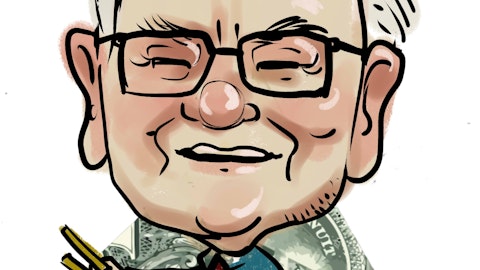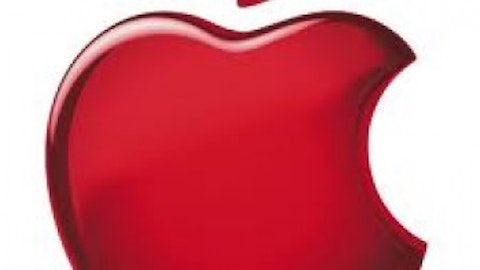No, this isn’t a cattle auction, antique auction, or even a estate auction, but there are investments that need to be sold and bought. As investors, we can spend a lot of time researching companies, trading stocks, and even wondering if we made the right decision. I heard something a few years ago that has stuck with me ever since: “If the situation you are in doesn’t reward you for your efforts, change the situation.” There are some companies that are struggling in major ways, and some companies that could change the results of our efforts.
Hewlett-Packard Company (NYSE:HPQ) is one company that shows how quickly the PC is becoming a thing of the past. If there was a “Death of the PC” movement, Hewlett-Packard would have to be the poster child. The company’s revenues fell 8% in 2012, but that pales in comparison to their stock, which has fallen 43% in the past year. In only two of the past five years has the company shown an increase in revenue. Desktops and printers were once the company’s bread and butter items, but accounted for less than 49% of the company’s revenue in 2012. If there is anything that appears positive, the stock seems to be very cheap as the company shows a 21% free cash flow (FCF) yield.
J.C. Penney Company, Inc. (NYSE:JCP)’s CEO Ron Johnson promised a “turn-around” for this company previously labeled as a retail giant. To start 2012, J.C. Penney alienated much of its customer base by no longer accepting or issuing coupons. In four of the past five years revenues have decreased, including nearly a 20% decrease in 2012. One year ago the stock was 54% higher than it is today. This probably wasn’t the “turn-around” investors were hoping for, but that’s not all. The company also suspended its dividend in May, but does show a 10.1% FCF yield.

While Amazon and eBay’s stocks have increased nearly 41% and 70%, respectively, Best Buy has experienced around a 39% decrease. Best Buy’s stock continued to flounder even after Richard Schulze made a bid to buy the company. Admittedly Best Buy has not seen a decrease in revenues for the past decade, but neither has eBay or Amazon.
Valuations on Amazon are often tricky, due in part to how quickly the company is growing. For a company like Amazon, FCF yields may not be the best method, as Daniel Sparks explains in a recent post. He suggests using cash from operations as an alternative valuation.
After Amazon experienced twelve fold revenue increases in the past decade, Best Buy’s 258% increase seems shabby. eBay’s revenues have increased by 650% in the same time frame. If cash from operations is used to value Amazon as Daniel suggests, Amazon is actually under-valued despite this enormous growth. eBay’s 3.5% FCF yield is far more expensive than Best Buy’s 10.1%, but at least the company is growing. USA Today speculates that Best Buy will close hundreds of stores in 2013, which landed Best Buy in a compiled list of eight companies expected to have the most closures.
Many times investing comes down to perspective. Every one of these companies has an opportunity to grow, but some seem to grasp the idea better than others. The graph below shows how these stocks have performed in the past year with the S&P 500 as the bench mark.

The Foolish Bottom Line…
So, here is the deal. Every investor has different ways of placing value on a company, and no two investors will see something exactly the same way. To me, Amazon and eBay have shown steady growth and great performances with no reason to believe they will stop. While I don’t own sharse of any of these companies currently, I would have to ponder changing my situation if Best Buy, J.C. Penney, or Hewlett-Packard were in my portfolio. After all, our efforts should be rewarded.
The article It’s Time For An Auction originally appeared on Fool.com and is written by Tyler Wofford.
Copyright © 1995 – 2013 The Motley Fool, LLC. All rights reserved. The Motley Fool has a disclosure policy.





